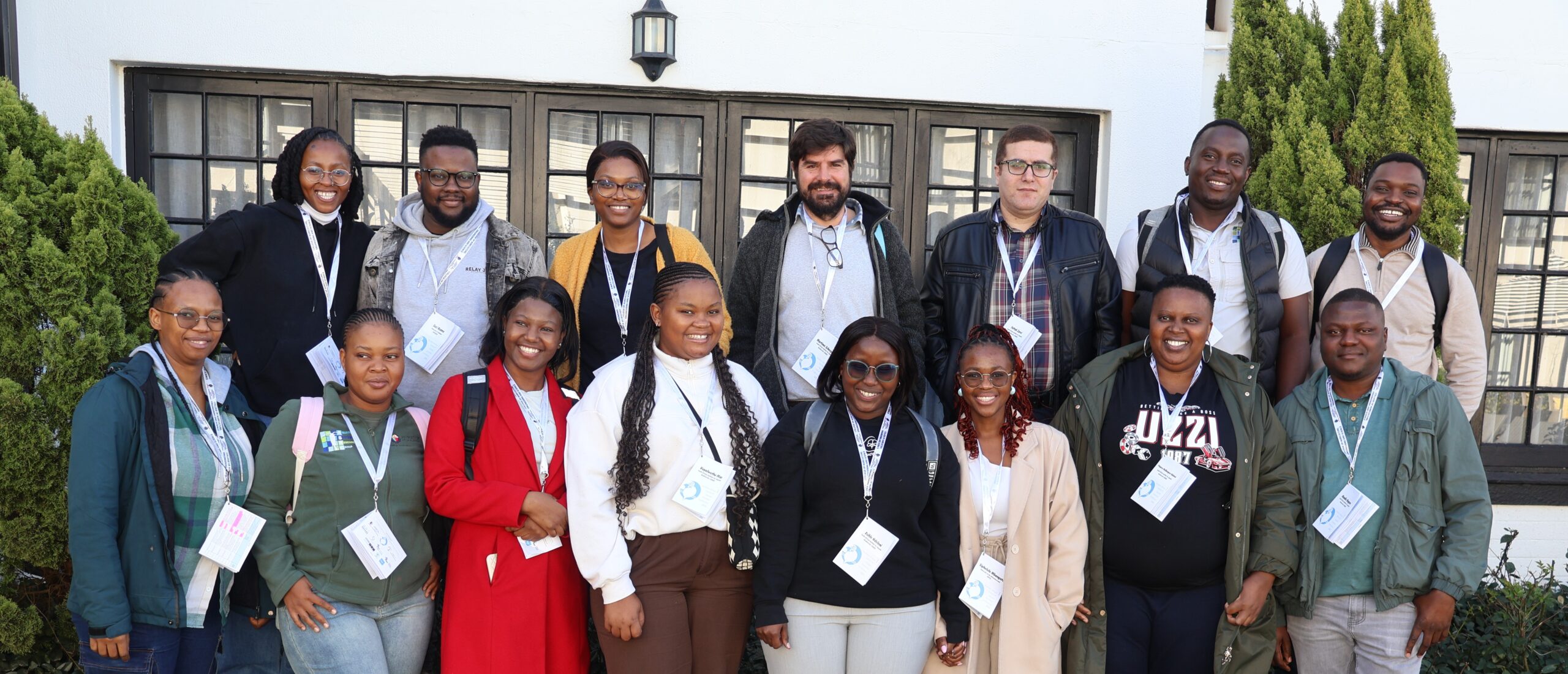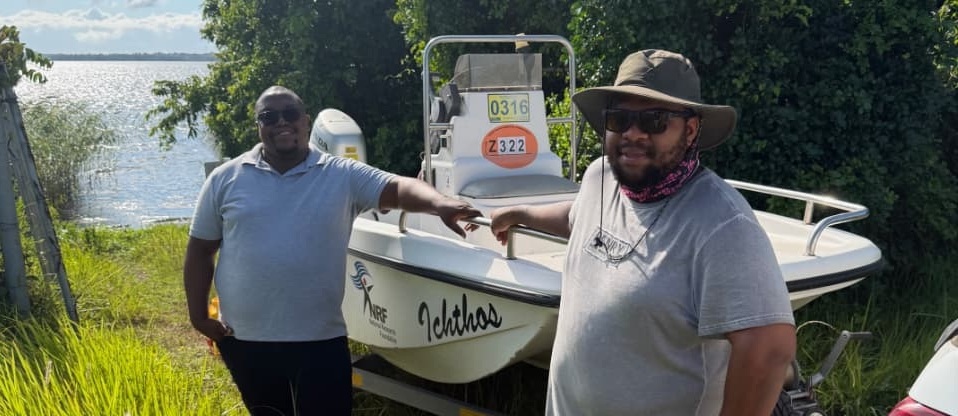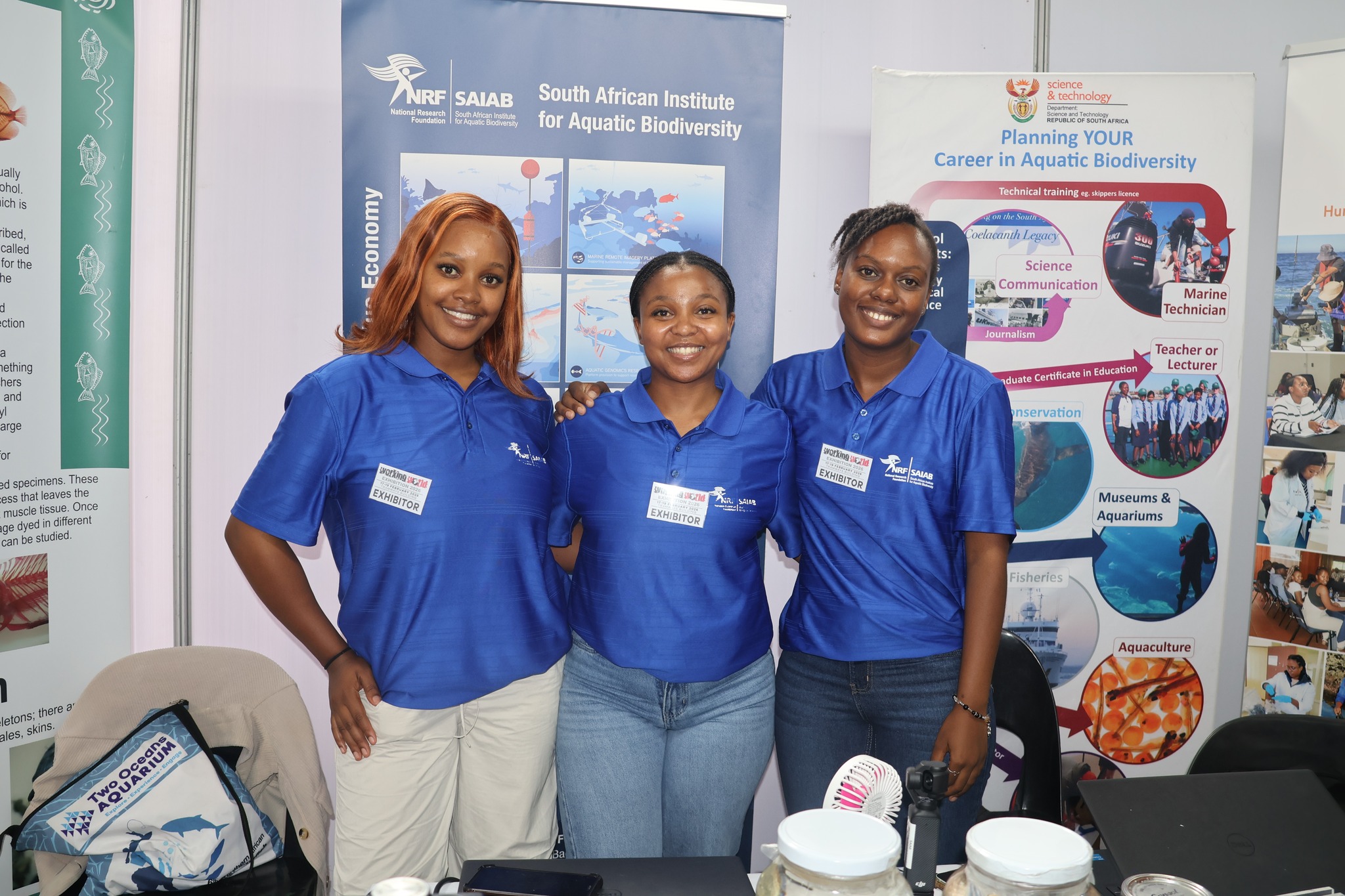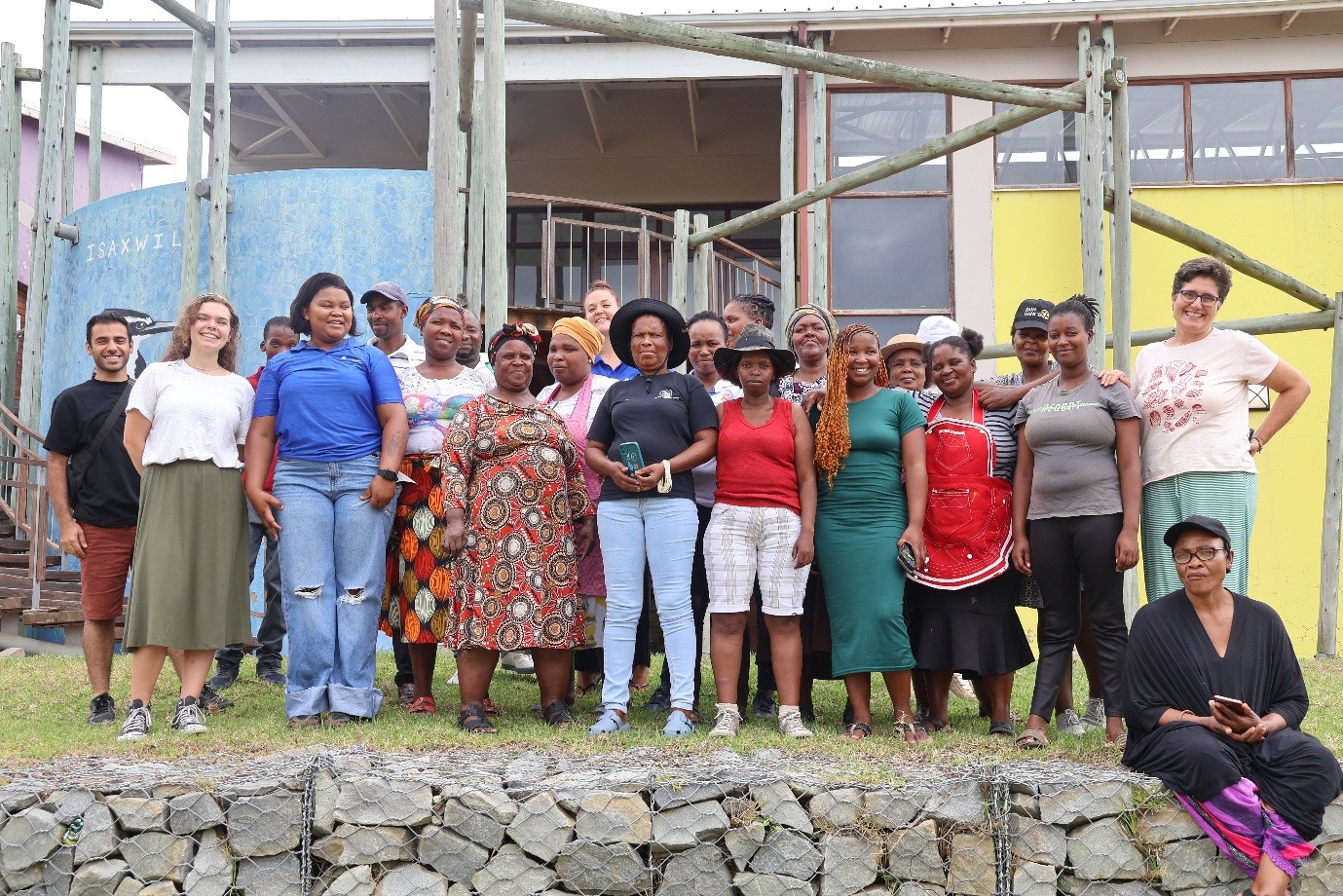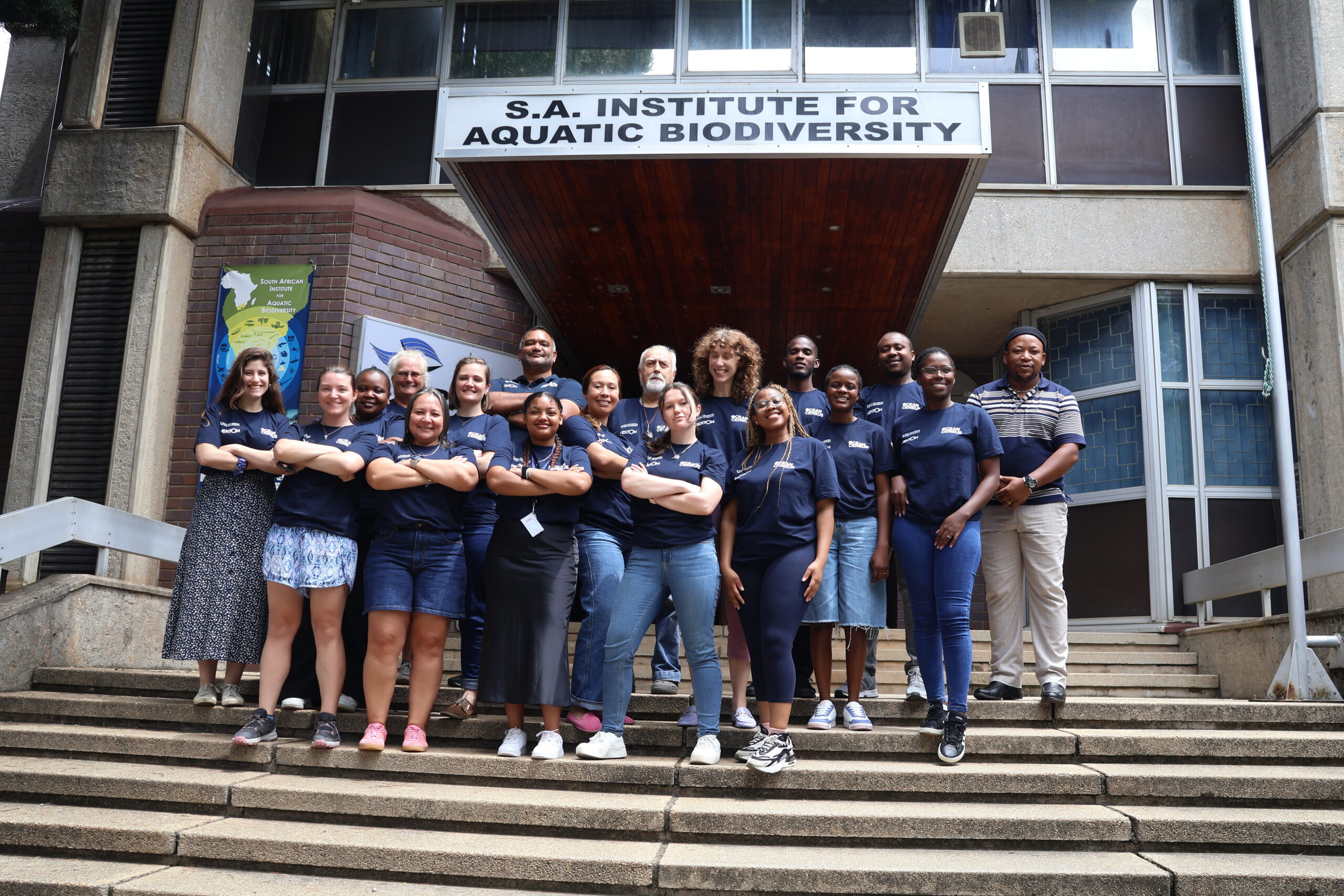The Southern African Society for Aquatic Scientists (SASAqS) hosted its 2025 conference from 29 June to 3 July in Pietermaritzburg, KwaZulu-Natal. This year’s theme, “Aquatic Science and Practice,” aimed to bridge the gap between research and implementation by bringing together researchers, industry professionals, government officials, and students to explore sustainable solutions for challenges facing aquatic ecosystems.
Hosted by the Institute of Natural Resources and the University of KwaZulu-Natal (UKZN), the conference featured interdisciplinary presentations spanning hydrology, freshwater ecology, social science, and policy. According to SASAqS President Wynand Malherbe, the goal was to “combine the aquatic sciences we do as researchers and showcase how we can put it into practice and find effective or sustainable solutions for all the problems we have in the aquatic environment.”
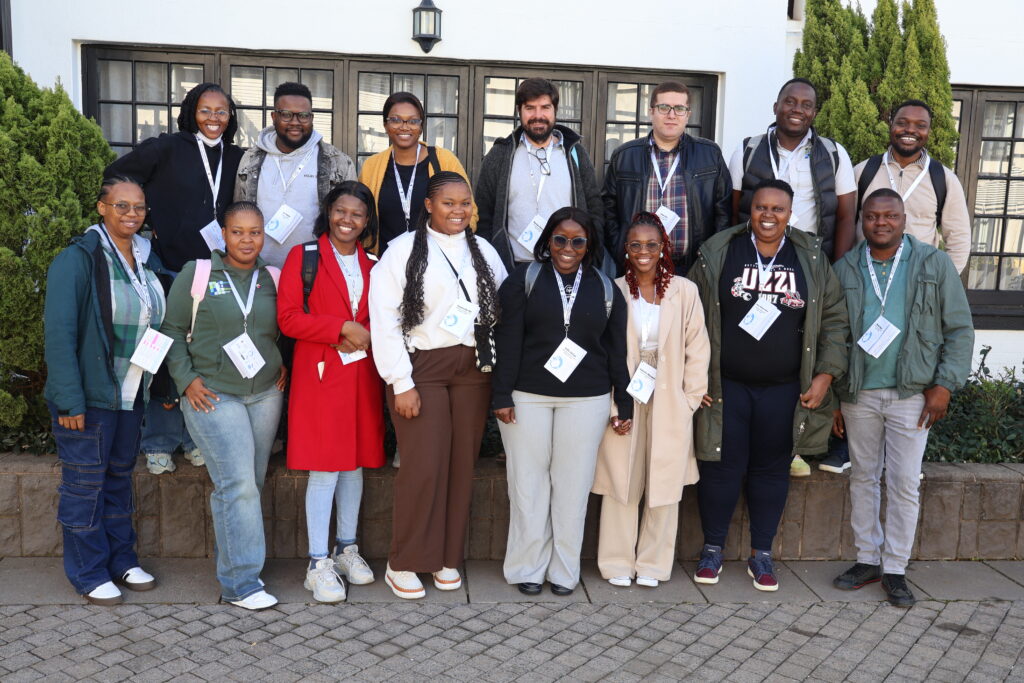
NRF-SAIAB team at the SASAqS conference.
NRF-SAIAB at the Forefront of Aquatic Science
NRF-SAIAB had a strong presence at the conference, with researchers and students from the Freshwater Field Unit and the Coastal and Ocean Sciences Team (COST) actively participating. The institute contributed to nine sessions, showcasing research in feeding ecology, functional morphology, ecological engineering, integrative taxonomy, and species discovery, among others.
NRF-SAIAB also made a valuable contribution to scientific knowledge sharing by exhibiting two books authored by Honorary Research Associates, Professor Paul Skelton’s Freshwater Fishes of Southern Africa, and Professor Alan Whitfield’s Knysna Estuary: Jewel of the Garden Route. In a gesture of mentorship, Professor Skelton donated personally signed copies of Freshwater Fishes of Southern Africa: A Complete Guide to two student prizes at the gala dinner.
Among the many conference highlights was NRF-SAIAB’s PhD student Nichole Donough, based at North-West University, who won the award for best student oral presentation. Her research used parasitic profiles to differentiate between killifish (Nothobranchius), shedding light on their role in parasite transmission in temporary aquatic ecosystems. For her outstanding talk, she was awarded a book voucher and a complimentary PeerJ journal publication.
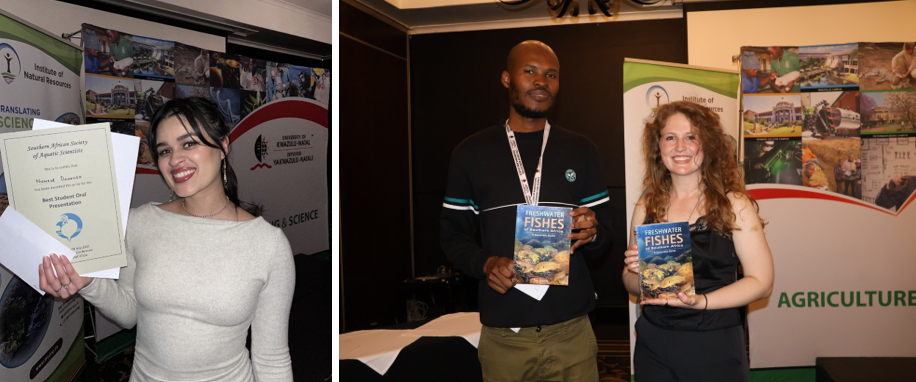
Left photo: Nichole Donough who won best oral presentation. Right photo: Muzi Cele (left) and Lomarie Jense van Rensburg (right) were awarded the two personally signed books by Professor Paul Skelton.
Reflections and Insights
The value of the conference extended beyond presentations. Attendees repeatedly praised the networking opportunities and the diversity of disciplines represented.
“I’ve met people from all over the country and even internationally,” said Raelene Jones-Sappor, a Master’s student from UKZN. “Everyone seems to have different specialities, but they’re all linked to aquatics. I’ve made lots of new friends,” she/he said.
Tamara Venter, a Master’s student from North-West University attending her first conference, found the experience deeply rewarding: “There’s ground-breaking stuff happening here. I enjoyed sessions on fisheries and invasive species – it’s been a great way to understand the direction our field is going.”
Mlondi Shezi, a postdoctoral researcher at UKZN, highlighted the interdisciplinary nature of the event. “It wasn’t just environmentalists. There were people from government, industry, and even other sciences. That mix contributed to a valuable learning experience.”
Several attendees expressed that the conference played a key role in fostering collaboration and professional growth. Suveena Govendor, part of the Local Organising Committee, said, “This is a really good networking conference. Postgrad students were being approached by SANBI and GroundTruth. It’s good for building professional repertoire.”
Busisa Ntshangase, an ecologist at GroundTruth, noted the importance of having conversations that move beyond highlighting problems. “We need to act on the findings. It was encouraging to hear case studies where research is being applied in the real world.”
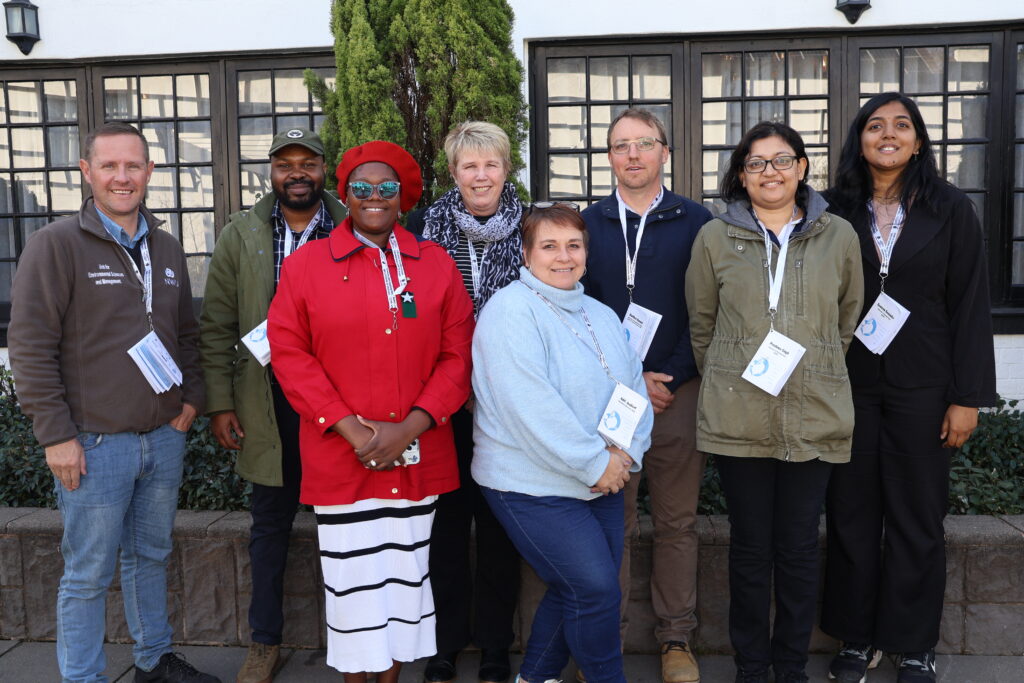
The Local Organising Committee of SASAqS.
Themes that Shaped the Conversation
One of the defining features of the 2025 conference was its deliberate focus on transdisciplinary research and early career researchers. Matthew Burnett, principal scientist at the Institute of Natural Resources and part of the local organising committee, explained: “We tried to highlight early career researchers – from MSc to postdocs and those just entering the industry. We had at least 51 early career researchers, nearly half the total attendees.”
Talks covered pressing topics including water pollution, biodiversity conservation, climate adaptation, and community-based resource management – showing the broad scope of aquatic science today.
Looking Ahead: The Future of Aquatic Research
Looking to the future, there are high hopes that the next SASAqS conference will be hosted by NRF-SAIAB and Rhodes University. Malherbe emphasised the importance of expanding participation. “I’m hoping to increase student involvement and also government involvement – people who are dealing with aquatic problems on the ground. We want them to see what scientists are doing so we can support each other, and not work in silos.”
